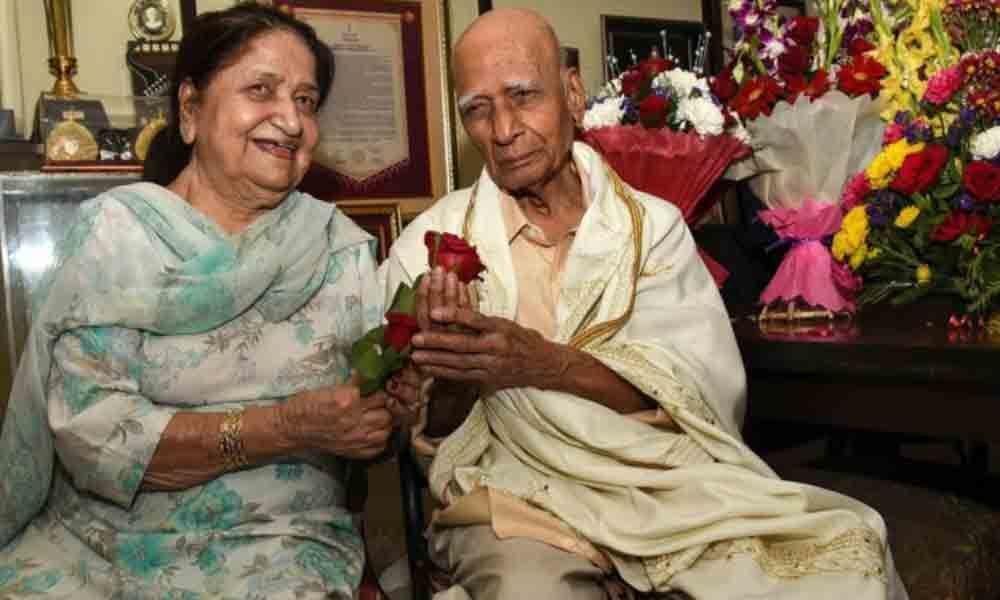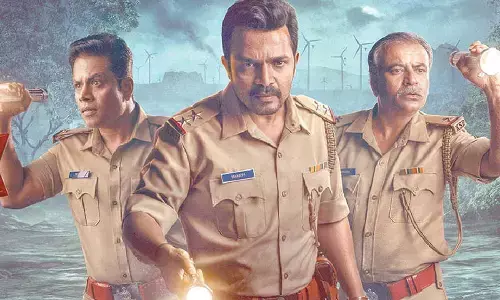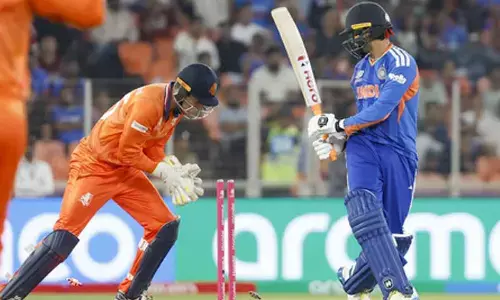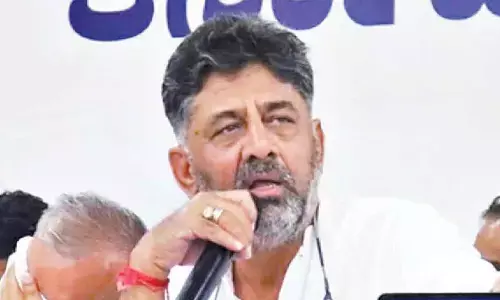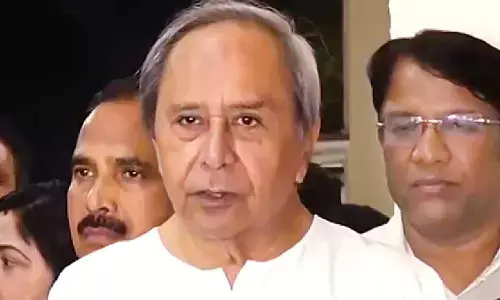Kabhi Kabhi Khayyam!
Khayyam's strength was as much in the lyrics as in his music. He always teamed up with legendary poets and it is rare that one finds indifferent or frivolous poetry in his songs
Among all the pictures that one saw of Khayyam in media reports about his passing was the one with his wife that stood out. The photo has a relaxed Khayyam on the harmonium and his singer wife Jagjit Kaur apparently singing along with him. 'Dekhlo aaj humko jee bhar ke' it seems to say. And appreciate the camaraderie, the compatibility of a couple who spent decades immersed in their common love - Music.
The mood of the picture is probably what defines Khayyam's entire music repertoire too. Leisurely, flowing, unhurried turns and pace. Music that doesn't overwhelm but slowly immerses the listener in an undulating river of nectar.
Khayyam is undoubtedly among the best of music composers that this country has ever produced. But, compared to most of his contemporaries, it appears that he was not in a hurry to notch up numbers, to factory produce compositions. He chose to carve each piece with love and care, each song a masterpiece in itself.
Interestingly, Khayyam's career as a composer began way back in 1948 with 'Heer Ranjha' and spanned across 70 decades, a stupendous achievement by any standards. The hauntingly sad and yet hopeful song 'Wo subha kabhi to aayegi' by Mukesh and the peppy 'Aasman pe hai khuda aur zameen pe hum' were his compositions that came within just a few years after his debut and struck a chord with the masses, then swinging between early post-Independence euphoria and apprehensions about the future. Khayyam worked sparingly but produced memorable hits in the 1950s and 60s with the lilting 'Baharon mera jeevan bhi sanwaaro', the achingly sweet romantic number 'Aur kuch der theher'; the legendary 'Sham-e-Gham ki kasam' rendered in the quaint, mellow tone of Talat Mehmood and Rafi's angst-filled 'Jaane kya dhoondti rehti hain ye aankhein mujh mein'.
Some would say fame came late for the composer. Because it was almost three decades after he made his film music debut that Khayyam produced his most popular songs. The fact that he had some of the most magnificently complete tracks to his credit in the first two decades after Independence notwithstanding, it was with the popular songs of the 70s that Khayyam once and for all established himself as the king of nostalgic music, wrapped in melody and orchestration of understated grandeur.
'Kabhi kabhi mere dil mein khayal aata hai' is once and for all the anthem for a longing heart and 'Main pal do pal ka shayar hun' in the earnest, clear voice of Mukesh has garnered an invincible spot as every poet's message to the world. They are songs that have thus far had no parallel either in lyrics, in symbolism or in the truths they told.
Khayyam's strength was as much in the lyrics as in his music. He always teamed up with legendary poets and it is rare that one finds indifferent or frivolous poetry in his songs. While Kaifi Azmi and Sahir Ludhianvi were his best teammates, Ali Sardar Jafri, Majrooh Sultanpuri and Jan Nisar Akhtar, Nida Fazli later gave their very best words for Khayyam to weave into wonderful songs. Makhdoom Mohiuddin's 'Phir chedi raat baat phoolon ki' is also one such classic example of what great poetry can contribute to an extraordinary composition.
Rekha once said that Khayyam gave her a 'wajood', an identity, with 'Umrao Jaan' and arguably the film's music is among the most unmatchable creative pieces in the history of Indian cinema. The provocative, lilting, intimate tone of 'In aankhon ke masti ke' and 'Dil cheez kya hai' contrasted beautifully with the desolate, desperate tone of the other track from the same film 'Ye kya jagah hai doston'.
With a repertoire that ranges from ghazals to 'Mujras', ballads to classical tunes, Khayyam created his songs on values that music makers of today probably fail to see. That intimacy can be subtle, that a single violin can gently and powerfully say what a raucous ensemble cannot. And that poetry is half the soul of any music composition.
Razia Sultan was his other masterpiece. When the vibrant, full-bodied voice of Lata Mangeshkar stops at 'Ye zameen chup hai'....it feels as though Khayyam's entire mastery has resonated in the brief silence before the next words... 'Aasman chup hai...' Like cool. silvery moonlight that spreads through the silent desert. Who else but Khayyam can give music that echoes through silence?
Khayyam's personal life is also a study in love, dedication and commitment. His wonderful sync with his singer wife Jagjit Kaur - together they did the stirring numbers 'Dekhlo aaj hum ki jee bhar ke'...and 'tum apna ranjo gham' - his dedication to the cause of promoting young composers, the stoic manner in which he bore the grief of losing his son, the dignity and erudition with which he maintained his position in the fluid world of film music should be lessons for generations of music professionals in the industry.
'Dikhayi diye yun', 'Hazaar raahein mudke dekhi', 'Ay dil-e-nadan', 'Karoge yaad tho'…where does even one begin and end the list?
The beginning of the rhythm of the tabla in Khayyam's songs is a kind of leitmotif, indicating that a journey has begun. Each of Khayyam's song is a journey of a lifetime. Each note filled with emotion that surges from the deep recesses of the heart that a listener himself does not know exist. Teamed with lyrics of exquisite poetry, Khayyam's music let this nation be awash in pure bliss for decades before he called it a day. What a music it was! And what a life!



